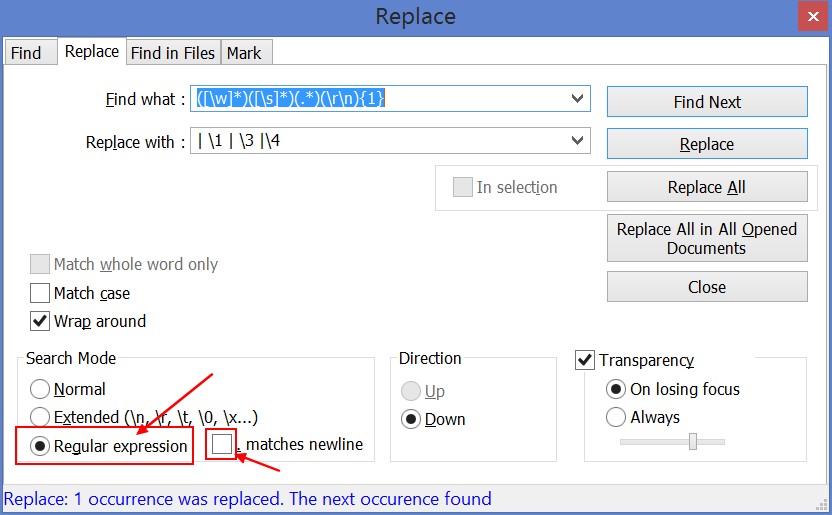

SEARCH = +, with TWO spaces before the + sign and REPLACE = ONE space To achieve your S/R ( Multiple spaces -> ONE space ), that’s quite easy : So, as you can see, this option has no relation, at all, with the search of spaces, anyway !

matches new line set, tries to match the longest string, from a first occurrence of 123 to the last occurrence of 789, in the current file, even though the string 789 is located some lines after the string 123 :-) This option allows the user to build multi-lines searches.įor instance, the regex 123.*789 with the. matches new line, then the dot matches, absolutely, ALL the characters of a file.

The Form Feed character, displayed as FF, = \f ( \x0c ) The Carriage Return character, displayed as CR, = \r ( \x0d ) The New Line character, displayed as LF, = \n ( \x0a ) matches ANY character DIFFERENT from the 3 characters, below : By default, with the regex engine of N++, the special character dot. In my opinion, Stephen, you didn’t understand, exactly, the use of the.


 0 kommentar(er)
0 kommentar(er)
